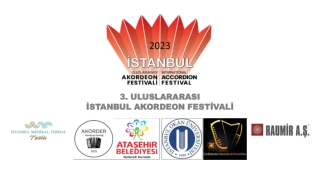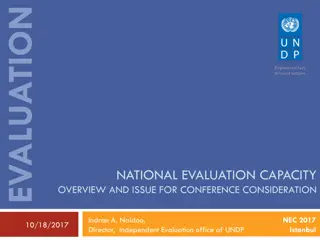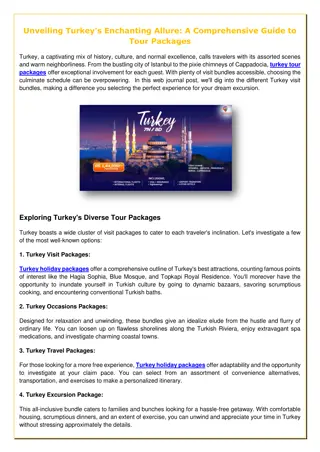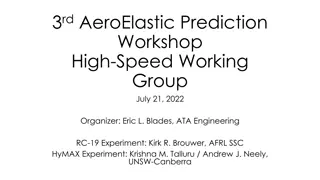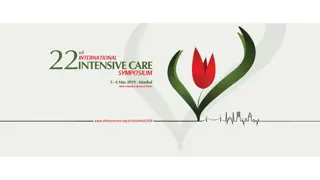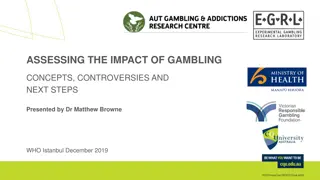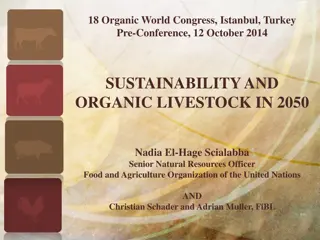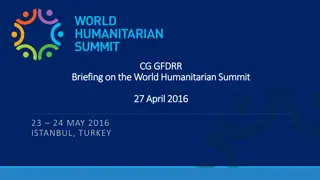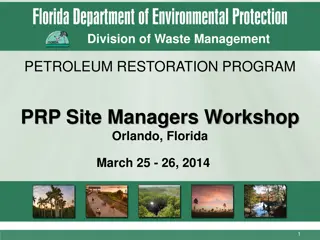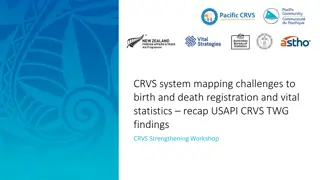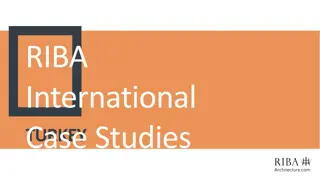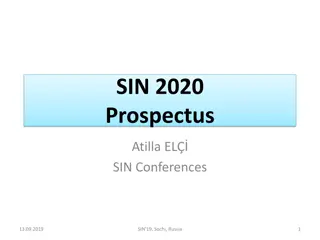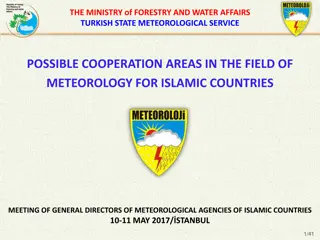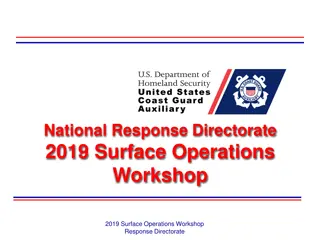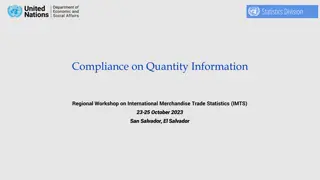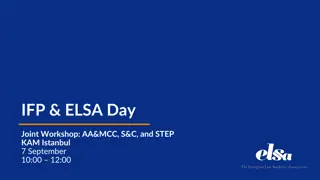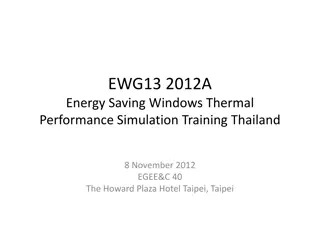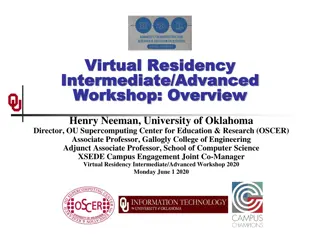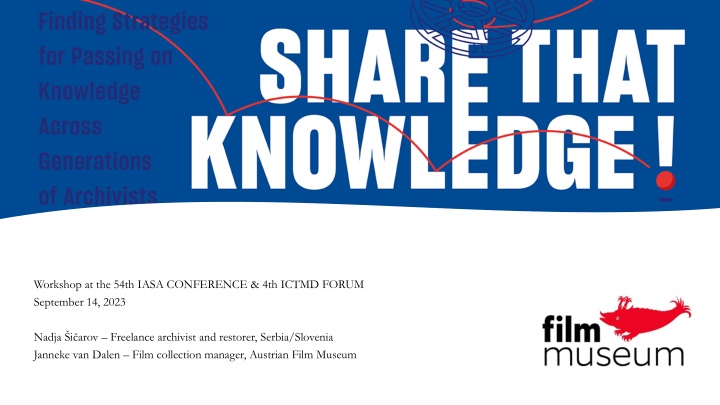
Exploring Challenges in Sharing Knowledge within Audiovisual Archives
Discover the complexities of sharing valuable knowledge in audiovisual archives, from bridging generational gaps to preserving technical expertise. Join the discourse on facilitating knowledge exchange and understanding the importance of preservation practices.
Download Presentation

Please find below an Image/Link to download the presentation.
The content on the website is provided AS IS for your information and personal use only. It may not be sold, licensed, or shared on other websites without obtaining consent from the author. If you encounter any issues during the download, it is possible that the publisher has removed the file from their server.
You are allowed to download the files provided on this website for personal or commercial use, subject to the condition that they are used lawfully. All files are the property of their respective owners.
The content on the website is provided AS IS for your information and personal use only. It may not be sold, licensed, or shared on other websites without obtaining consent from the author.
E N D
Presentation Transcript
Workshop at the 54th IASA CONFERENCE & 4th ICTMD FORUM September 14, 2023 Nadja i arov Freelance archivist and restorer, Serbia/Slovenia Janneke van Dalen Film collection manager, Austrian Film Museum
Workshop: Finding methods for sharing knowledge within sound and audiovisual archives 1. Introduce research project "Share that Knowledge!" The knowledge about the collections we work with, that is with audiovisual archivists, technicians, researchers etc., is an intangible part of audiovisual heritage, but is also fragile and needs attention for it to be passed on, shared, and preserved. 2. Present the research outcome: a road map for knowledge sharing 3. Share experience about knowledge transfer, its challenges and its practices
Why researching knowledge sharing in audiovisual archives? Colleagues with a lot of experience can have tacit or implicit knowledge that is embodied within their experience, they might not be fully aware of it and therefore they might not know how to share this knowledge exactly. For us, it can be difficult to know what questions to ask. We wondered how to apply the methods, standards, and theory we learned elsewhere and during our studies, such as knowledge about new technologies, or ideas about improved standards and methods. Edith Schlemmer, long term archivist at the Austrian Film Museum, explaining how to identify the production elements used for newsreels to Florian Haag and Nadja i arov.
Our questions How can our more experienced colleagues share their valuable knowledge gained through years of practice and experience with us? How can we bring in "new" knowledge and learn from our senior colleagues at the same time? How can we facilitate the exchange of knowledge between different generations of audiovisual archivists? Experienced hands make a cement splice Deciphering the handwriting of colleagues in the technical reports of film elements
Some knowledge transfer challenges How to recognizing and pass on collection knowledge of people with long tenure to new generations of archivists? How to facilitate exchange of collection knowledge between communities, researchers, and archivists? How to better share collection knowledge between curatorial and archival departments? How to share knowledge about past preservation activities and embed them in existing documentation practices, to secure understanding and continuity of practices? How to pass on and preserve technical knowledge and skills when there are only a few specialists left and no one to take over or no education available? How to share an understanding of the importance of AV preservation with funding bodies, and colleagues? How to use standards and guidelines produced within the international community of AV archives, and overcome a possible language barrier? How to create new knowledge about audiovisual practices, when there is a lack of necessary knowledge and expertise in the region? Edith Schlemmer going through and explaining previous systems of collection documentation
Share that Knowledge! Finding Strategies for Passing on Knowledge Across Generations of Audiovisual Archivists (2019-2023) Working group Archive Affiliates Austrian Film Museum (Austria) Academic Film Center and Alternative Film Archive (Serbia) BFI National Archive (UK) Cin math que qu b coise (Canada) Cineteca Nacional de M xico (Mexico) Imperial War Museum (UK) J.H. Kwabena Nketia Archives University of Ghana (Ghana) Library and Archives Canada (Canada) N rodn filmov archiv (Czech Republic) National Film and Sound Archive (Australia) Netherlands Institute for Sound and Vision (The Netherlands) Slovenska kinoteka (Slovenia) Thai Film Archive (Thailand) Expert advisors Research advisor on methods of qualitative research: Karen F. Gracy (Professor, School of Information, Kent State University) Group of experts
Share that Knowledge! Finding Strategies for Passing on Knowledge Across Generations of Audiovisual Archivists Goal Develop strategies and methods of unlocking, articulating and sustaining the knowledge that archivists hold about the collections they work with Objectives Conduct literature research and set up a theoretical framework for a qualitative research study of knowledge transfer Define the expert knowledge of audiovisual archivists Explore the methods of knowledge transfer within audiovisual archives Identify the challenges in transferring the expert knowledge of audiovisual archivists Formulate and disseminate successful strategies of knowledge transfer for audiovisual archives Outcome Handbook for knowledge sharing within audiovisual archives Workshop/Symposium
Share that Knowledge! Finding Strategies for Passing on Knowledge Across Generations of Audiovisual Archivists Research Examples from other fields, but needed are specific methods for our field Looking at practices: qualitative research methods Collected data: 86 interviews with colleagues about their knowledge sharing experience Interviewees with different positions: audiovisual archivists, technicians, managers, curators, etc. Transcribed, analysed using grounded theory methods Patterns of types of knowledge at risk, challenges of sharing this knowledge, and practiced methods Translated research findings into this road map
The main outcome of the research: Share That Knowledge! A Road Map for Sharing Knowledge across Generations of Audiovisual Archivists
Structure of the book Share That Knowledge! A Road Map for Sharing Knowledge across Generations of Audiovisual Archivists Introduction Eight insights into knowledge sharing Point of departure I: Areas of knowledge Point of departure II: Scenarios Point of departure II: Methods
Eight insights into knowledge sharing 1. Audiovisual archivists hold tacit knowledge that is difficult to recognize, articulate, and share 2. Documentation and people are sources of knowledge that complement each other 3. No archive is an island: knowledge is within and outside the organization 4. Knowledge transfer is an ongoing process, but certain situations and types of knowledge require special attention and a dedicated sharing approach 5. The character of knowledge determines the appropriate sharing methods 6. A sharing attitude is a precondition for knowledge sharing, but methods still need to be tailored to the people involved 7. Management awareness and support are essential 8. We need to accept that some knowledge will be lost
Structure of the book Share That Knowledge! A Road Map for Sharing Knowledge across Generations of Audiovisual Archivists Point of departure I: Areas of knowledge Organizational knowledge Knowledge about preservation activities Collection knowledge Technological knowledge and skills Point of departure II: Scenarios When starting employment During daily work When ending employment When knowledge is no longer at the organization Point of departure III: Methods
Workshop IASA 14th September, 2023 Participants are grouped into five groups. Each group will together work on one knowledge sharing exercise: 1. 2. 3. 4. 5. How to Share: Knowledge about Preservation Activities How to Share: Technical Knowledge and Skills Improving Existing Systems of Knowledge Sharing during Daily Work Preventing Knowledge Gaps When Ending Employment Retrieving Knowledge When It Is No Longer in the Organization At the end of the workshop, we would like to have a discussion about the knowledge sharing challenges and methods. To start the discussion, each group will share one knowledge sharing method formulated in your exercise. 9:45 10:30 - group work 10:30 11:00 - break 10:30 11:30 - group work 11:30 12:00 - discussion
Knowledge sharing methods we identified in the research project Mentoring Meeting Regularly to Share Knowledge Introducing Internal Presentations Creating Collective Documentation Organizing Collective Screenings Planning a Period of Overlap Capturing Knowledge through Oral History Involving Honorary Employees Creating and Using an Alumni Network Organizing Technical Workshops

